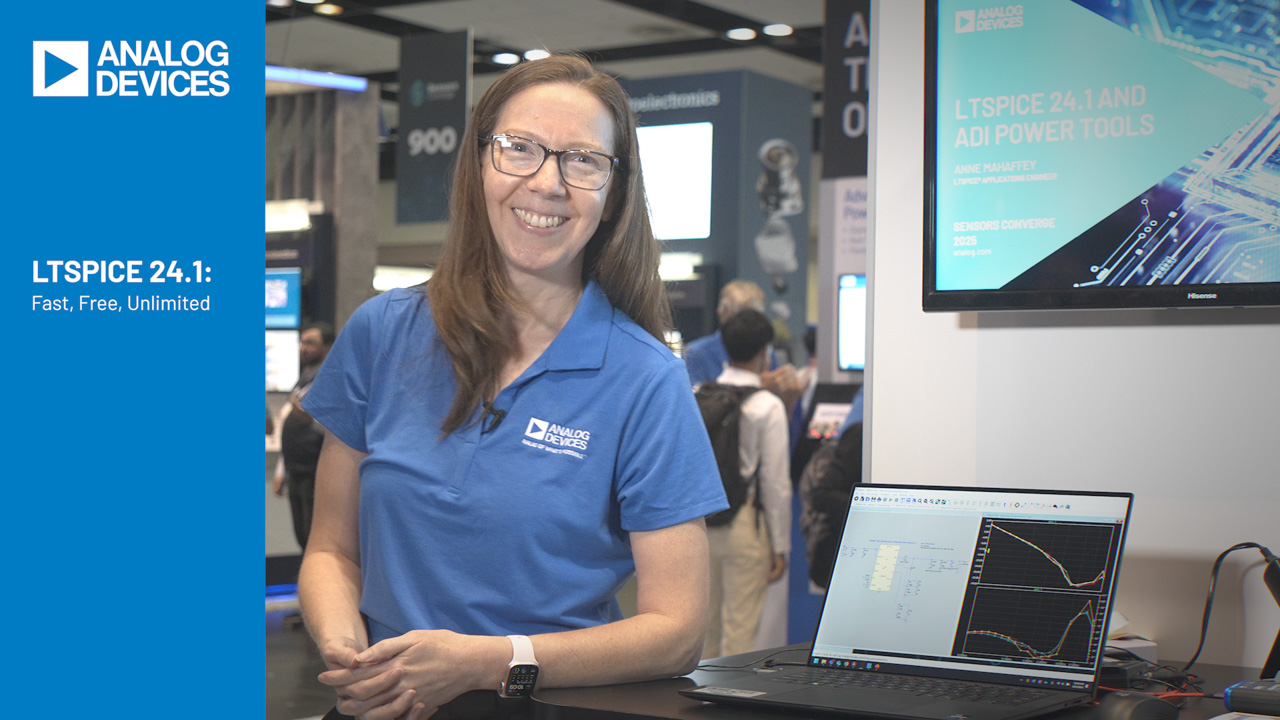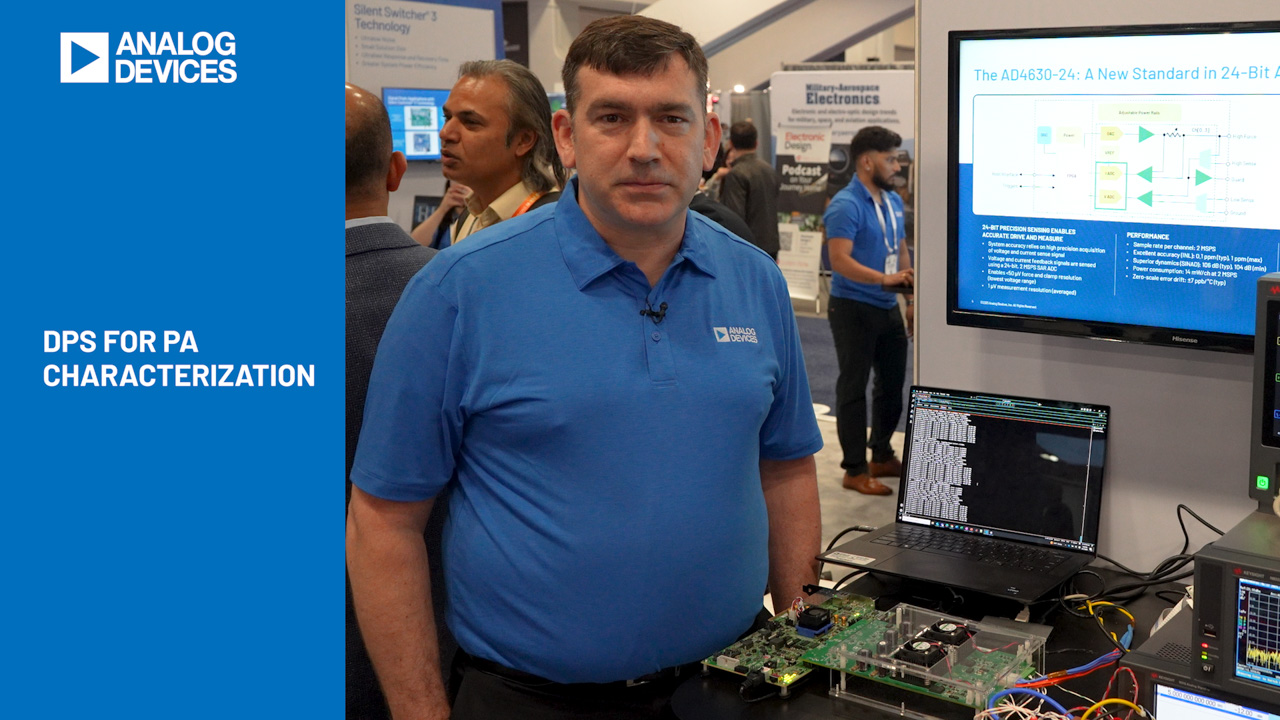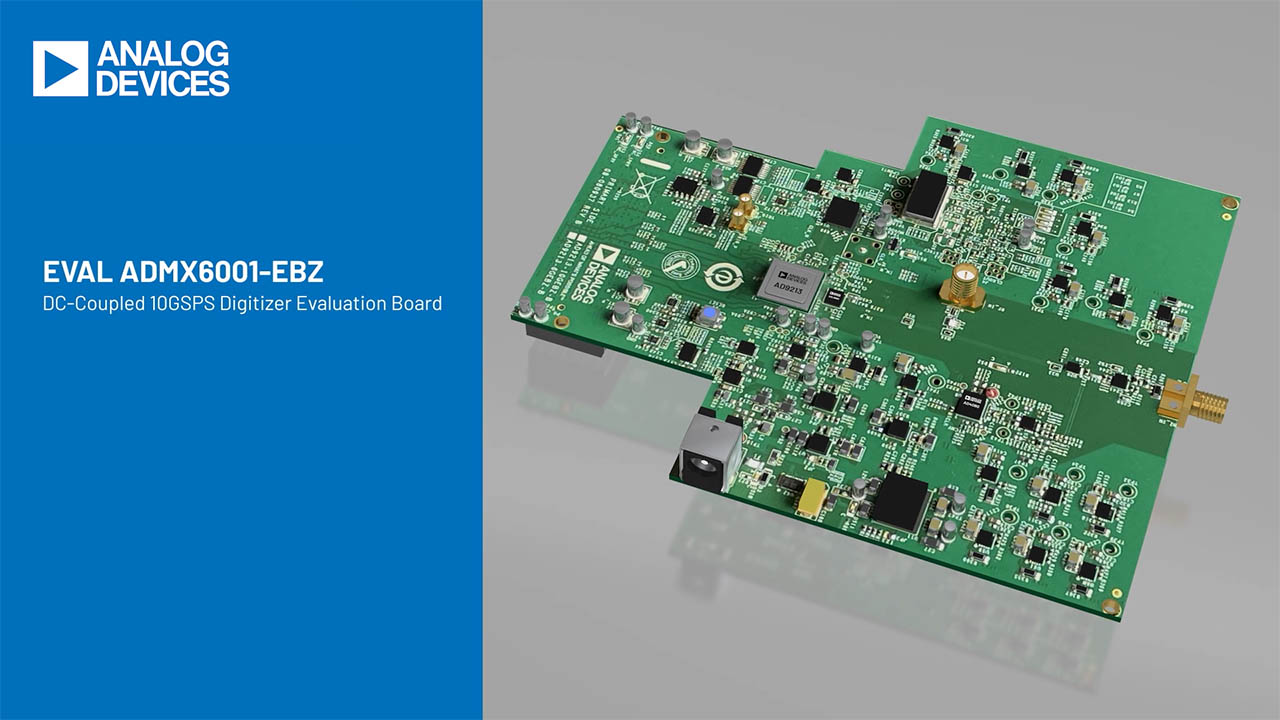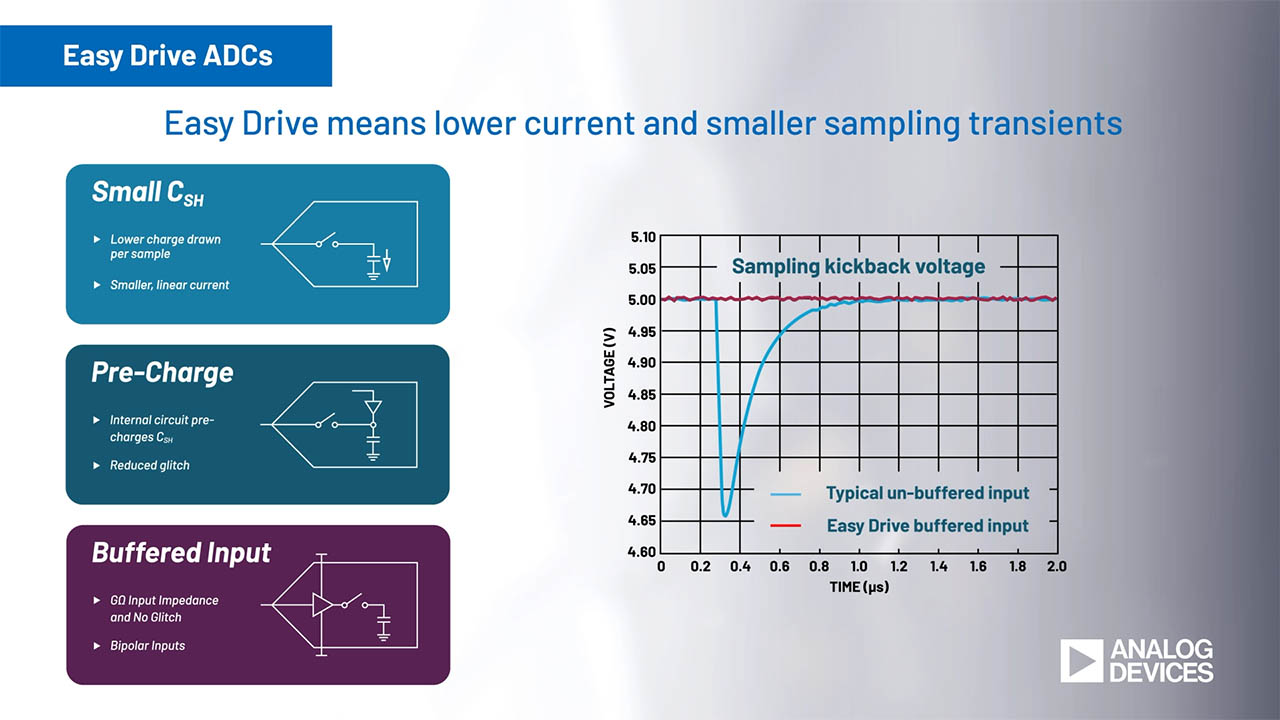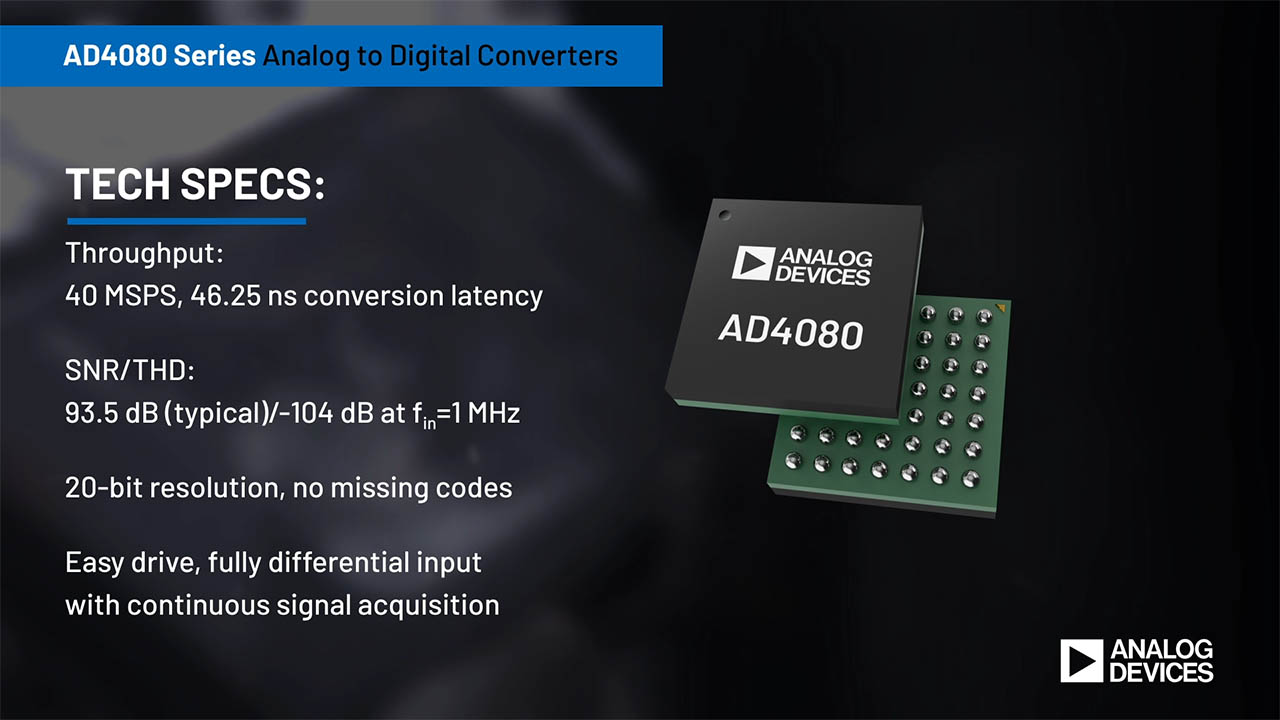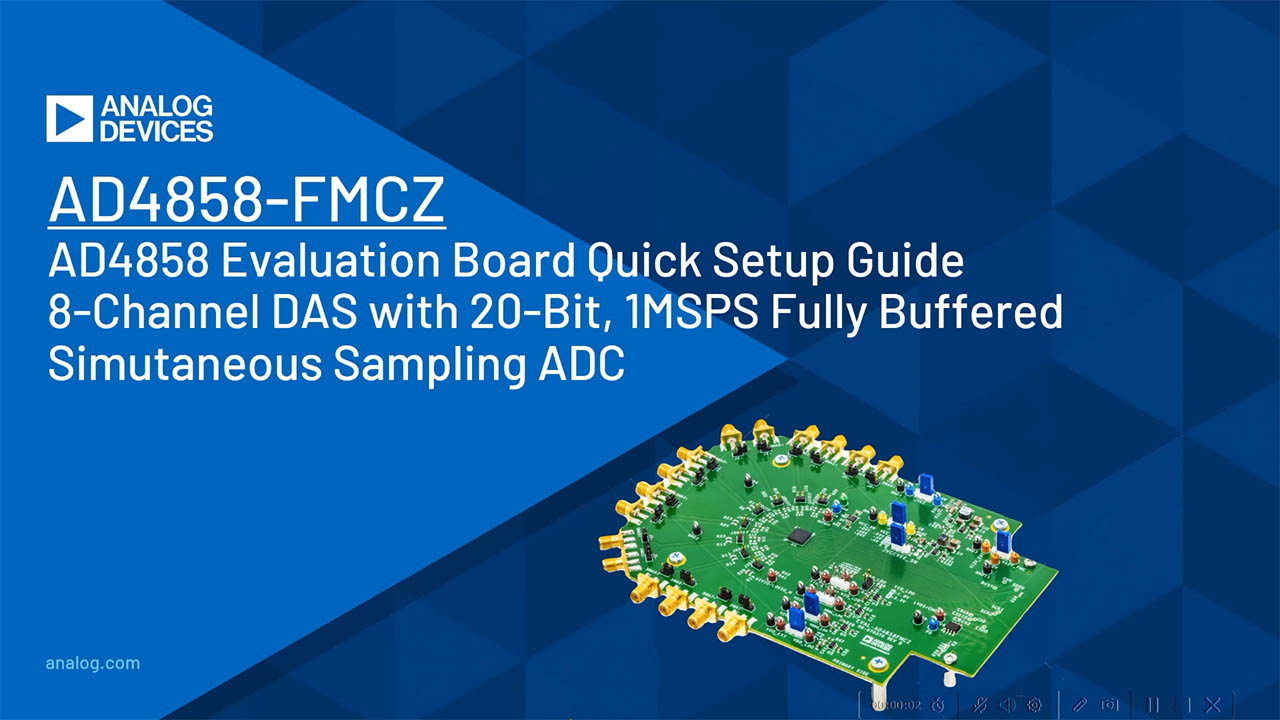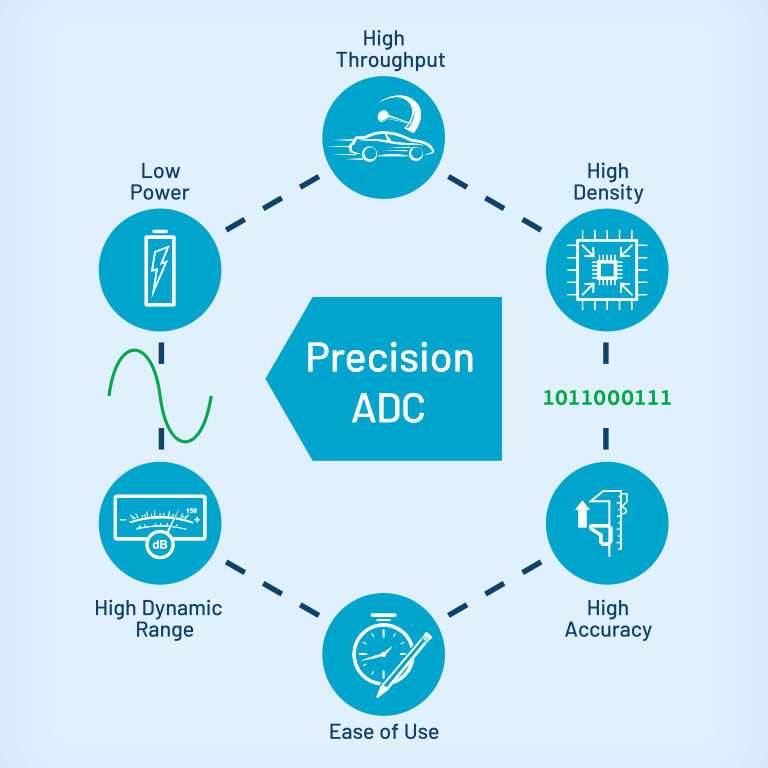Precision ADCs

Precision ADCs
Analog Devices provides an unrivaled portfolio for precision analog-to-digital converters (ADCs). When you select an ADI precision ADC, you are selecting from the industry-leading portfolio in AC and DC performance, power, speed, and size, with products ranging from 8-bit to 32-bit resolution. Products are available in a range of architectures, including successive approximation (SAR) ADCs, Σ-Δ modulators, and isolated ADCs.
Analog Devices provides an unrivaled portfolio for precision analog-to-digital converters (ADCs). When you select an ADI precision ADC, you are selecting from the industry-leading portfolio in AC and DC performance, power, speed, and size, with products ranging from 8-bit to 32-bit resolution. Products are available in a range of architectures, including successive approximation (SAR) ADCs, Σ-Δ modulators, and isolated ADCs.
Precision ADC Selection Guide
{{modalTitle}}
{{modalDescription}}
{{dropdownTitle}}
- {{defaultSelectedText}} {{#each projectNames}}
- {{name}} {{/each}} {{#if newProjectText}}
-
{{newProjectText}}
{{/if}}
{{newProjectTitle}}
{{projectNameErrorText}}







